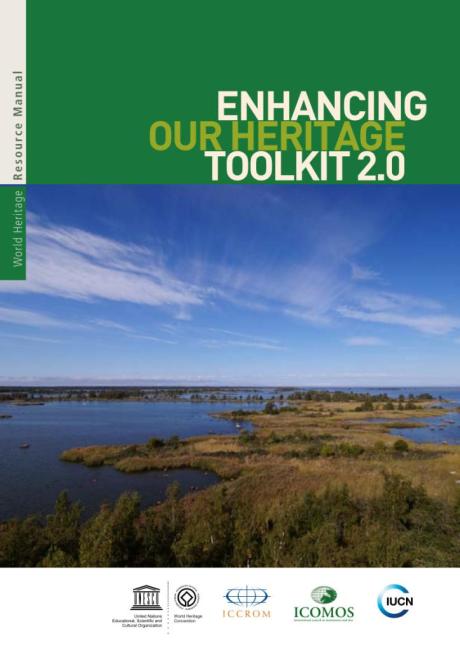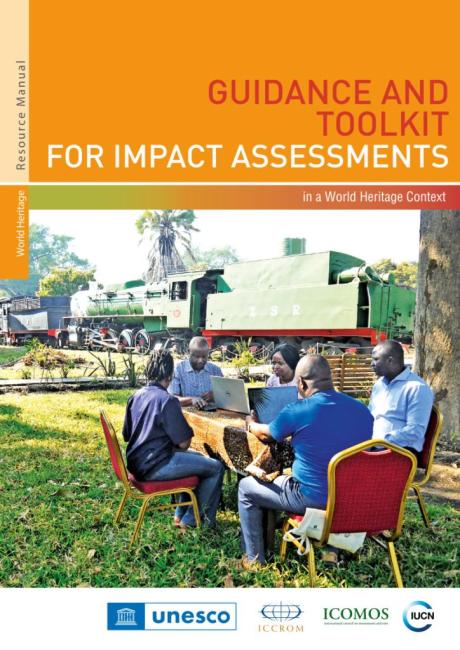About
In the Managing World Heritage platform you can find a range of essential resources to learn more about effective World Heritage management providing both theoretical concepts to evidence-based strategies for improving the conservation of heritage places on the ground.
In this Hub you can find multilingual resources and tools about heritage management both in shareable and printable formats.
In addition to manuals, tools and guidance documents, you can also access news, courses, events, and other capacity building activities offered by the World Heritage Leadership programme and other institutions.
All the manuals, toolkits and resources share in this portal are the result of the collective work of UNESCO, ICCROM, ICOMOS and IUCN, and they have been designed to assist site managers, focal points, and heritage professionals in caring for heritage places in their diverse roles and responsibilities in relation to World Heritage management.
The World Heritage Leadership is a capacity building programme jointly delivered by IUCN and ICCROM in collaboration with ICOMOS and the UNESCO World Heritage Centre. It is funded with the generous support of the Norwegian Ministry of Climate and Environment, with contributions from the Korean Cultural Heritage Administration (CHA), the Swiss Federal Office for the Environment (FOEN) and other partners.
As a capacity building programme, it focused on promoting links between people-nature-culture in the management of heritage places and securing heritage a more dynamic role in wider sustainable development.
The World Heritage Leadership operates around four knowledge modules:
01. Effective Management: People, Nature, Culture
Effective heritage management includes applying place-based and people-centred approaches to working with diverse communities and embracing nature-culture linkages.
The ‘Managing World Heritage’ manual and the ‘Enhancing Our Heritage Toolkit 2.0’ are essential resources for site coordinators, institutions, and communities in managing World Heritage. The ‘Managing World Heritage: People, Nature, Culture’ course is the flagship foundational course to support those involved in managing heritage places with the knowledge, skills and tools to manage heritage effectively.
02. Impact Assessment
Assessing the impacts of such projects – before deciding to proceed with their implementation – is essential to both prevent damage to World Heritage and identify sustainable options. The ‘Guidance and Toolkit for Impact Assessments in a World Heritage Context’ provides a framework for conducting impact assessments for cultural and natural heritage sites, and it offers practical tips and tools including checklists and a glossary. A resource manual on conducting Strategic Environmental Assessments for World Heritage is in the making.
03. Disaster Risk Management and Resilience
Heritage can be better protected from disasters while contributing to the resilience of societies. The manual “Managing Disaster Risk” provides an overview on how to integrate disaster risk management with other management frameworks. Promoting inter-sectorial and inter-organizational collaboration, heritage concerns can be advanced in wider agendas and plans for disaster risk reduction, resilience, and climate change adaptation.
04. Learning Networks
Networking and peer-exchange is a key component of effective and long-lasting capacity building as many involved in managing heritage often feel isolated when facing difficult challenges. Through the World Heritage Site Managers’ Forum, site coordinators and representatives of communities have the chance to meet colleagues and to better understand the processes and procedures of the World Heritage Committee. Furthermore, finding solutions to issues and challenges is an ongoing challenge and the PANORAMA Nature-Culture and the World Heritage Management Hub showcases case studies with elements that could be adapted at other heritage places.
Contributing to bridging the gap between heritage research and practice, the Heritage Place Lab has created a hub to explore how the co-creation of practice-led research can help improve management at World Heritage properties.
If you are interested in cooperating with the World Heritage Leadership or in partnering to develop capacity building activities locally or regionally, please contact us.



